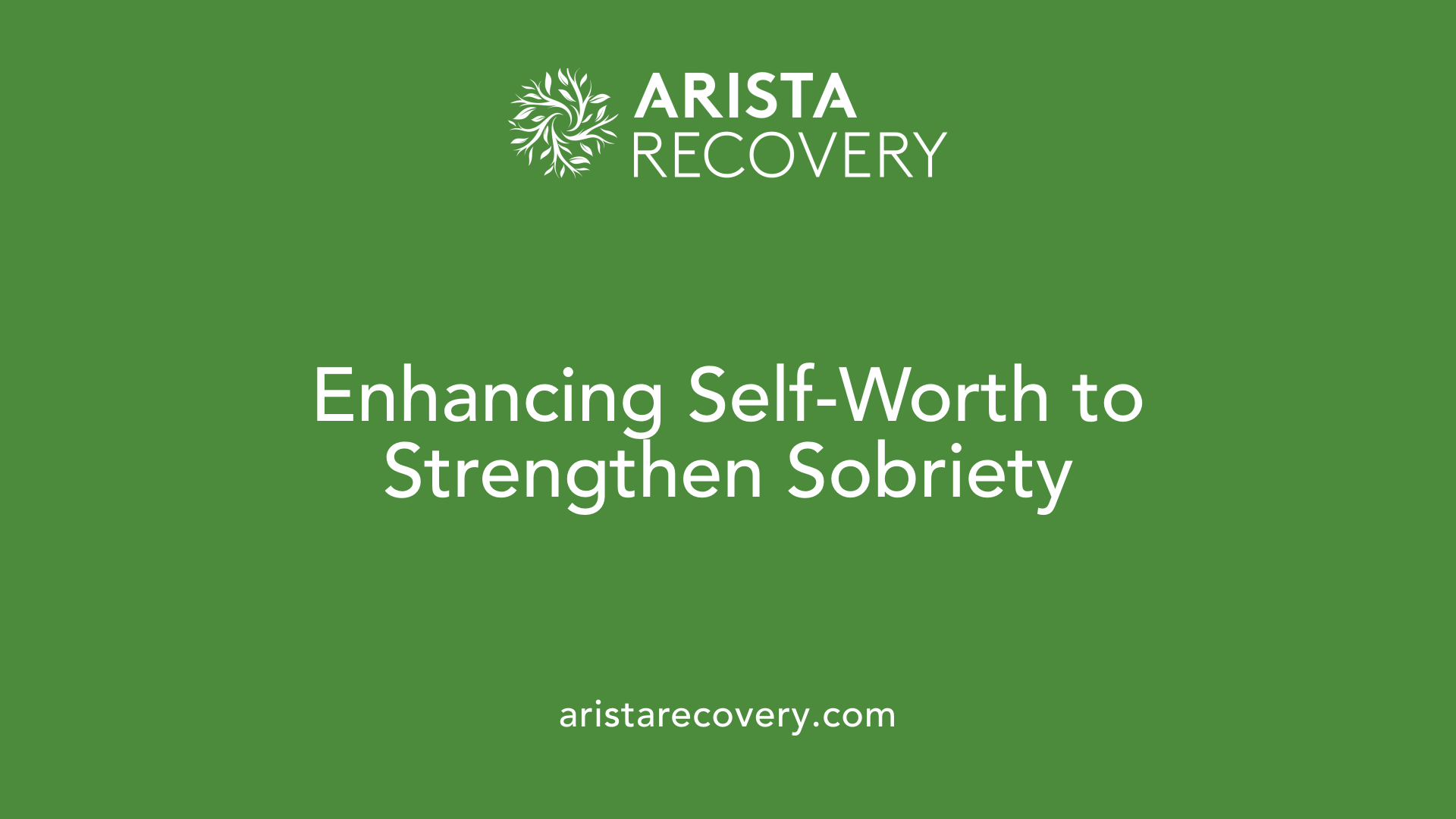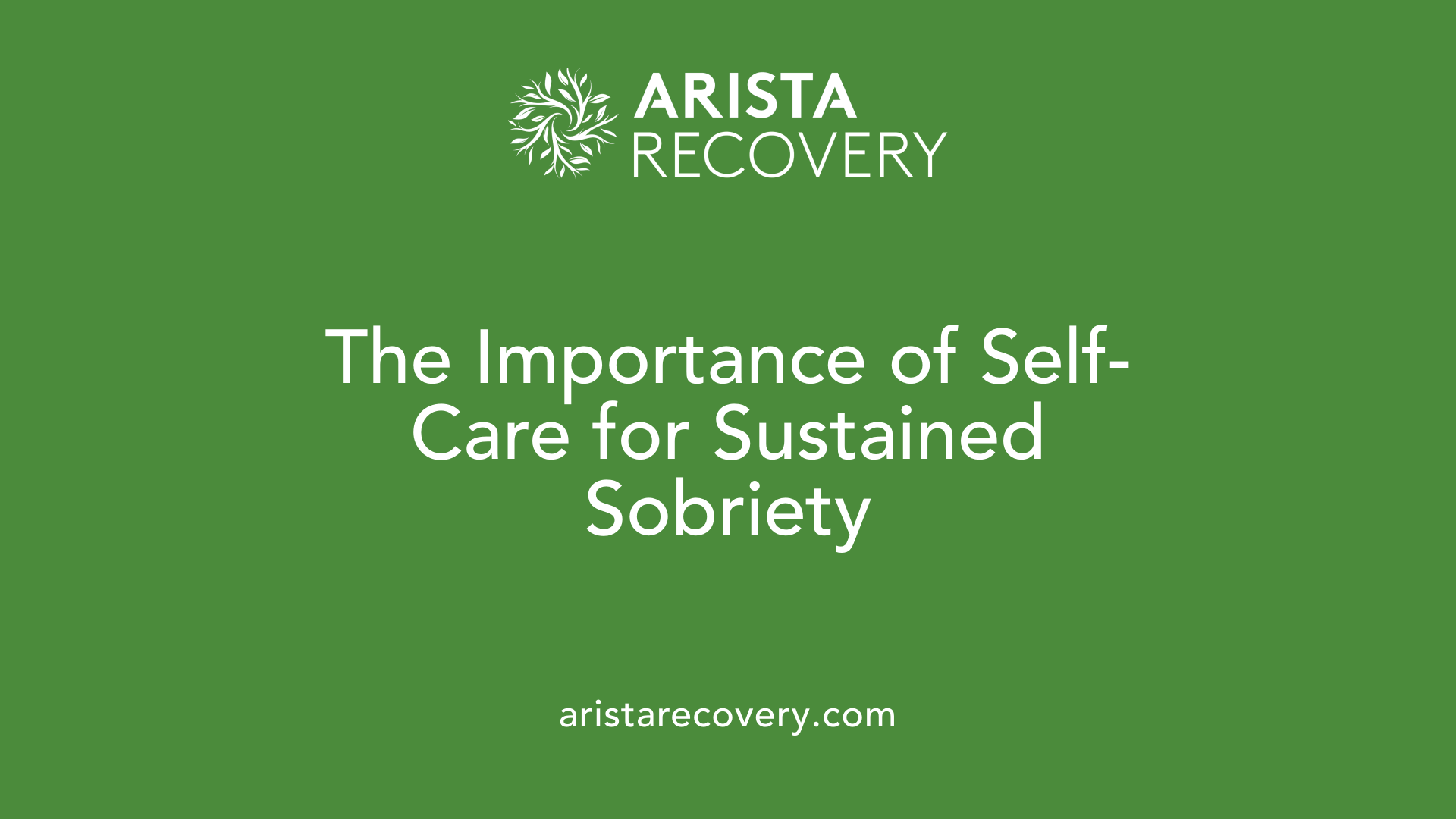
Understanding Self-Care in Addiction Recovery
Addiction recovery is not merely about abstaining from substances; it involves a comprehensive healing process encompassing physical, mental, and emotional aspects. Self-care is an integral part of this journey, offering individuals the tools to foster resilience, understand their needs, and build a foundation for sustainable sobriety. As individuals transition from substance dependence, embracing self-care helps in cultivating a healthier lifestyle, mitigating stressors, and enhancing overall well-being essential for lasting recovery.
Defining Self-Care in the Context of Recovery

What is self-care in recovery?
Self-care in recovery involves engaging in deliberate practices that support an individual's physical, mental, emotional, and spiritual well-being beyond merely abstaining from substances. It encompasses a wide range of activities that promote overall health, including:
Elements of self-care in addiction recovery
Self-care in addiction recovery is multi-faceted, targeting various aspects of life:
ElementDescriptionExample ActivitiesPhysical HealthBuilding bodily strength through proper diet and exercise.Regular workouts, balanced nutrition, sleep.Mental HealthAddressing emotional triggers and enhancing cognitive functions.Journaling, therapy, mindfulness practices.Spiritual HealthReconnecting with personal beliefs and finding purpose.Meditation, nature walks, spiritual readings.Social SupportCultivating relationships that reinforce positive changes.Support groups, family time, friendships.
Daily self-care practices
Incorporating self-care into daily routines is vital for sustained recovery. Here are some practical self-care practices for individuals in recovery:
Emphasizing self-care not only supports recovery but also nurtures a sense of purpose, joy, and resilience essential for a healthier, sober life.
The Role of Self-Love in Recovery Transformation

Why is self-love important in addiction recovery?
Self-love is vital in addiction recovery because it allows individuals to accept their flaws and recognize their inherent worth, creating a foundation for rebuilding self-esteem. It helps in releasing guilt and shame tied to addiction, promoting self-forgiveness and acceptance, which are crucial for healing. By fostering self-compassion, individuals can treat themselves kindly during challenging times, reducing self-criticism and the risk of relapse.
Cultivating self-love during recovery
Cultivating self-love can take various forms during recovery. Some effective strategies include:
Impact on self-esteem and triggers
Self-love enhances resilience, enabling individuals to face triggers and stresses without turning back to substance use. The ability to appreciate oneself helps in building healthier relationships, as positive self-regard translates into better interactions with others. In turn, this support network further fortifies the recovery process. Overall, by improving self-image, self-love contributes to sustainable recovery and long-term well-being.
Building Self-Worth for Lifelong Sobriety

Why is self-worth important in recovery?
Self-worth is crucial in recovery because it directly influences an individual's ability to maintain sobriety and pursue personal growth. Low self-esteem can often lead individuals back to substance abuse, making it essential to rebuild confidence during this process.
Strategies for building self-worth
Techniques that can improve self-esteem include:
Therapeutic approaches to enhance self-esteem
Therapeutic approaches such as psychodrama can greatly enhance emotional understanding and communication skills, which are vital for developing self-worth. Other methods include group therapy and mindfulness exercises, promoting self-acceptance and encouraging self-exploration. Ultimately, fostering a strong sense of self-worth supports a positive outlook on recovery and helps prevent relapse.
Prioritizing Self-Care: Strategies for Success
How can I prioritize self-care in recovery?
To prioritize self-care in recovery, individuals should craft a tailored self-care plan that highlights a blend of physical, emotional, and mental health activities. This includes regular exercise, which not only enhances physical health but also boosts mood and reduces stress levels.
Creating a self-care routine
Developing a structured self-care routine can be transformative. Activities should encompass proper nutrition—ensuring a balanced diet to stabilize mood—and sufficient sleep, allowing the body to recover and rejuvenate. Incorporate mindfulness practices like meditation or yoga, which can help reduce anxiety and enhance focus.
Identifying personal triggers
Identifying personal triggers is paramount in maintaining sobriety. Recognizing emotional states like hunger, anger, loneliness, or fatigue (H.A.L.T.) helps in addressing feelings before they lead to cravings or relapse. By understanding these triggers, individuals can better equip themselves with coping strategies.
Establishing healthy habits
Establishing healthy habits such as journaling, which aids in emotional processing, or engaging in creative outlets fosters a positive mindset and self-expression. Regular social interactions with supportive individuals also bolster self-esteem and motivation.
Role of mindfulness
Mindfulness plays a critical role in recovery. By being present and aware of one’s feelings, individuals can navigate their emotional landscape in a healthier way, reducing the likelihood of reverting to substance use as a coping mechanism. Practicing mindfulness daily cultivates resilience against stressors common in recovery.
Benefits of Self-Care in Recovery and Relapse Prevention

What are the benefits of self-care in recovery?
Self-care in recovery is essential as it helps individuals rebuild and maintain their physical, mental, and spiritual health, which are critical for resisting addiction triggers. Key benefits include improved mental health, reduced stress, and enhanced emotional resilience, all of which contribute to sustained sobriety.
Practices such as adequate sleep, regular exercise, and a balanced diet support physical well-being. Notably, regular exercise can enhance mood and stamina while helping to detoxify the body. These factors improve mental clarity and emotional balance, reducing the risk of relapse.
Additionally, nurturing social relationships through group activities, therapy or support networks provides the emotional support necessary for a fulfilling recovery journey. Engaging in hobbies or creative pursuits also promotes a sense of accomplishment and positivity.
Overall, a holistic self-care approach fosters healthy coping mechanisms, allowing individuals to navigate life's stressors more effectively, which is crucial for maintaining long-term abstinence from substances.
Physical Health: The Foundation of Recovery
Impact of Exercise and Nutrition
Regular exercise plays a significant role in the recovery process by enhancing mood, reducing anxiety, and improving physical stamina. The recommended routine involves engaging in physical activity for 30-60 minutes at least four times a week. Nutrition is equally crucial; a balanced diet not only helps in stabilizing mood but also supports the body's healing from the effects of addiction. Proper hydration and nutrient intake can reduce cravings and promote overall mental health.
Importance of Sleep and Medical Care
Quality sleep is essential for sustained recovery. Poor sleep can lead to irritability and increased cravings, making effective sleep hygiene practices necessary. Regular medical check-ups are important for addressing any lingering health issues caused by substance use, allowing individuals to work towards restoring their overall physical health.
Rebuilding Physical Health Post-Addiction
Recovery is a journey that requires a commitment to resuming healthy habits. This involves prioritizing physical self-care, including adequate nutrition, regular exercise, and proper sleep. Engaging in routines that nurture physical health can significantly lower the risk of relapse and enhance the quality of life during recovery.
Empowering Mental and Emotional Health Through Self-Care

Addressing Mental Health Needs
Addressing mental health issues, such as anxiety or depression, is vital in addiction recovery. Individuals must engage in self-care practices that promote mental well-being, such as seeking therapy or participating in support groups. This focused approach not only helps manage symptoms but also builds resilience against potential triggers that may lead to relapse.
Emotional Regulation Techniques
Practicing emotional regulation is crucial for maintaining sobriety. Techniques such as mindfulness, journaling, and therapy can help individuals process their emotions healthily, allowing them to confront feelings they may have previously suppressed. Understanding personal triggers is essential for managing cravings and making mindful choices moving forward.
Nurturing Social and Spiritual Connections
Nurturing connections with others can significantly boost emotional health. Joining support groups or spending time with family and friends fosters a sense of community and accountability. Additionally, engaging in spiritual practices like meditation or nature walks can enhance individuals’ sense of purpose and well-being, further supporting their recovery journey.
Self-Care: A Lifelong Commitment in Recovery
The journey to recovery is an ongoing process that demands a robust commitment to self-care. As individuals navigate the challenges of sobriety, integrating holistic self-care practices ensures a healthier, more resilient lifestyle. By prioritizing physical health, emotional well-being, and spiritual connections, those in recovery not only enhance their quality of life but also fortify themselves against relapse. Through self-care, individuals rediscover their potential, forge meaningful relationships, and embrace a future filled with hope and vitality. It is this unwavering dedication to self-care that lays the groundwork for enduring recovery and empowers individuals to thrive beyond addiction.
References
When mental health challenges and addiction intersect, it can feel isolating. At Arista, we offer compassionate, evidence-based, and trauma-informed care to help you heal, grow, and move forward.
The Importance of Self-Care in Addiction Recovery
You’re not alone in this.
When mental health challenges and addiction intersect, it can feel isolating. At Arista, we offer compassionate, evidence-based, and trauma-informed care to help you heal, grow, and move forward.
Support that moves with you.
You’ve taken a brave first step. At Arista Recovery, we’re here to help you continue with best-in-class care designed for long-term healing and support.
.webp)






